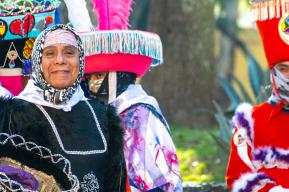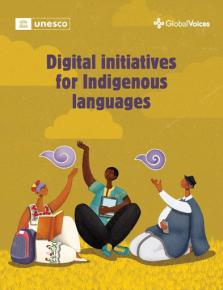Публикация
Уровень развития языков коренных народов в исследованиях
ISBN: 978-92-3-100521-3
Collation: 395 pages

Language plays a crucial role for people and for the planet, in which diversity – cultural, linguistic, biodiversity and otherwise – is a human condition and feature that is manifested in different ways and across different economic, political, environmental, social, and cultural domains and historical contexts, regardless of affiliation or residence. The right to free and unimpeded choice of language use, expression, and opinion as well as self-determination and active engagement in public life without fear of discrimination is a prerequisite for inclusiveness and equality as key conditions for open and participatory societies. Indigenous Peoples sustain vast majority of the world’s languages in use. Each Indigenous language is invaluable for humanity. They are treasures overflowing with history, values, technical skills, spirituality, and knowledge developed over millennia. Despite their immense value, many of the more than 7,000 languages currently in use around the world are in danger of falling out of use.
The United Nations General Assembly proclaimed the period 2022–2032 as the International Decade of Indigenous Languages, to draw attention on the critical loss of Indigenous languages and the urgent need to take urgent steps to preserve, revitalize and promote them. The United Nations Educational, Scientific and Cultural Organization (UNES-CO) has been tasked to act as the lead agency for the International Decade in cooperation with the UN Department of Economic and Social Affairs (UNDESA) and other UN system entities. UNESCO also led global efforts for the implementation of the International Year of Indigenous Languages in 2019, mobilizing a wide range of stakeholders and resources and implementing nearly 1000 activities in cooperation with partners worldwide.
In the context of the International Year and International Decade of Indigenous Languages, a Global Call for Re-search Papers was commissioned with the aim to show a diversity of scholarship in the field of Indigenous languages and related issues. The international peer-review team carried out a comprehensive review process of nearly 300 papers from 63 counties, facilitated the final compilation of 38 selected papers by researchers from 26 countries, and the production of 10 articles by peer-reviewers. Overall, this multilingual collection includes 48 articles by resear-chers and analytical pieces by peer reviewers from 30 countries. This initiative aims to contribute to the creation of favourable conditions for knowledge-sharing and dissemination of good practices on Indigenous languages, as well as growth and development through elaboration of new knowledge.
The International Decade of Indigenous Languages (2022-2032) sets the path for long-term actions around In-digenous languages, including enhanced cooperation between researchers and practitioners, provision of evi-dence-based information and data to policy and decision makers, and global mainstreaming of a new perspective on Indigenous languages.






